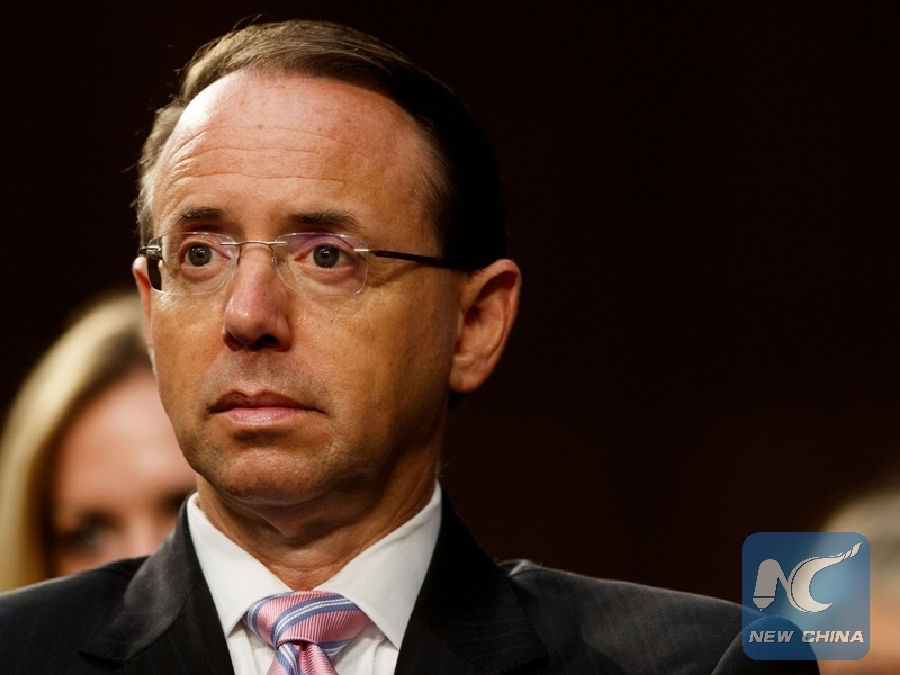
File photo taken on Sept. 4, 2018 shows U.S. Deputy Attorney General Rod Rosenstein attending a Senate confirmation hearing in Washington D.C., the United States. (Xinhua/Ting Shen)
WASHINGTON, April 29 (Xinhua) -- U.S. Deputy Attorney General Rod Rosenstein, who two years ago appointed Robert Mueller as special counsel over investigation into the possible ties between President Donald Trump's campaign and Russia during the 2016 U.S. elections, submitted a long-expected resignation letter to Trump on Monday.
His resignation is effective May 11.
"I am grateful to you for the opportunity to serve; for the courtesy and humor you often display in our personal conversations; and for the goals you set in your inaugural address: patriotism, unity, safety, education and prosperity," Rosenstein wrote in the letter now widely circulated on the internet. He did not mention the special counsel in his resignation letter.
"Political considerations may influence policy choices, but neutral principals must drive decisions about individual cases," he wrote.
Jeffrey Rosen, currently the No. 2 official at the Transportation Department, is awaiting a likely confirmation by the Senate to succeed Rosenstein.
Local media said Rosenstein had planned to leave the Justice Department shortly after Attorney General William Barr took office in February. However, Barr asked him to stay on for the conclusion of the Mueller probe.
The 448-page redacted Mueller report issued earlier this month stated that there was no evidence that Trump's campaign conspired with the Russian government during the 2016 U.S. presidential election but didn't conclude if the president had obstructed justice.
Mueller instead recounted 10 episodes in his report involving Trump and discussed potential legal theories for connecting these actions to elements of an obstruction offense. It is Barr and Rosenstein who concluded that the special counsel did not have "sufficient" evidence to support a charge in this field.

